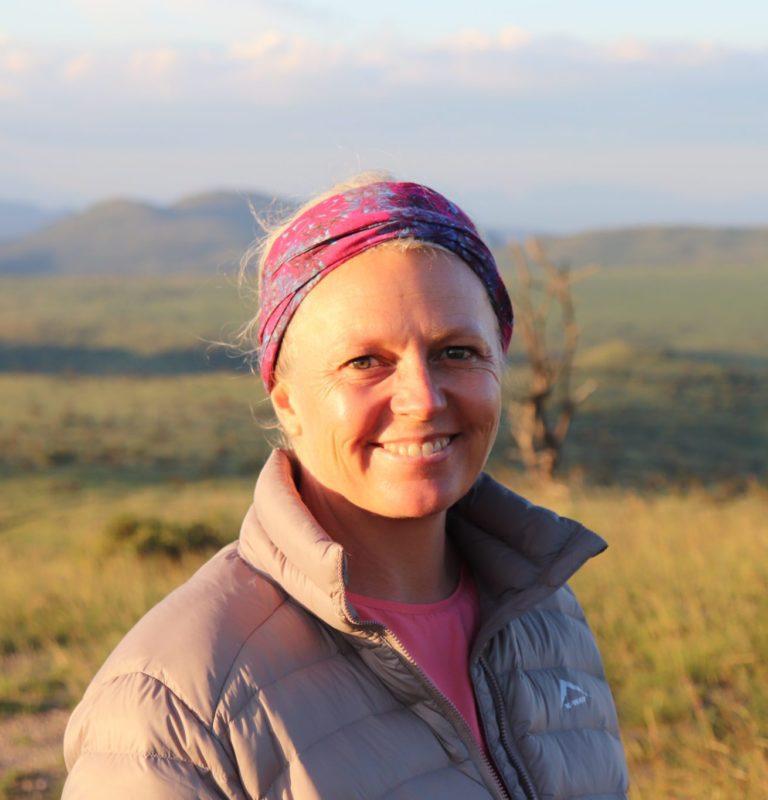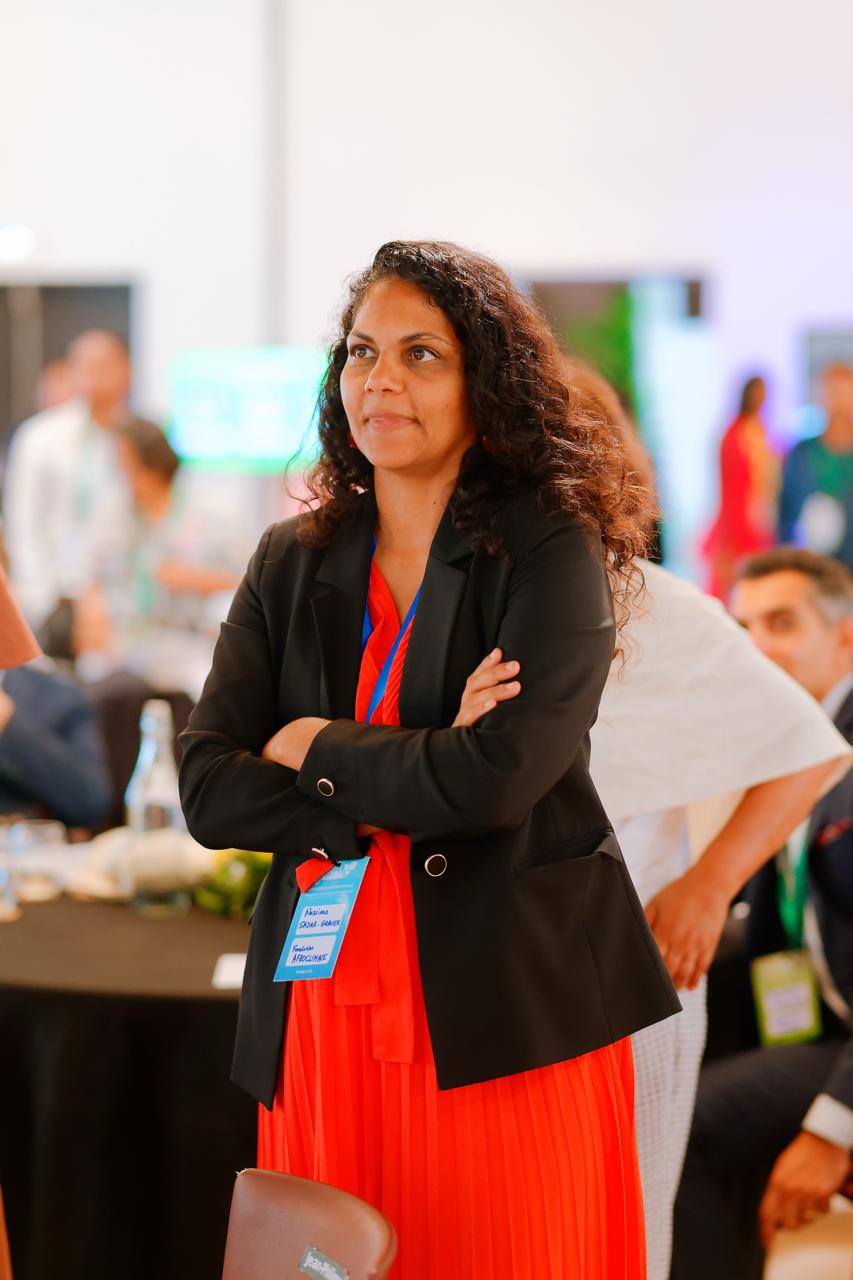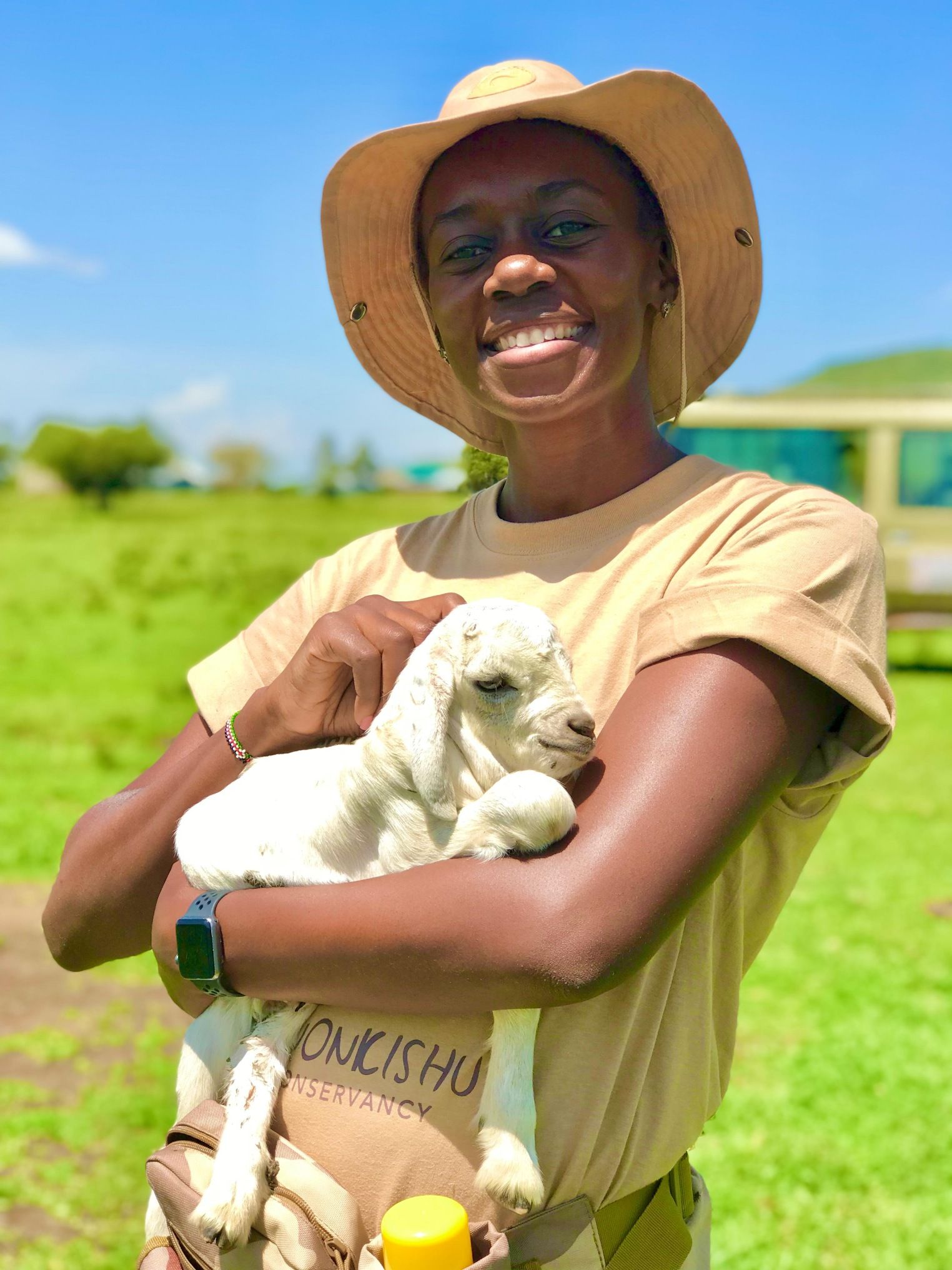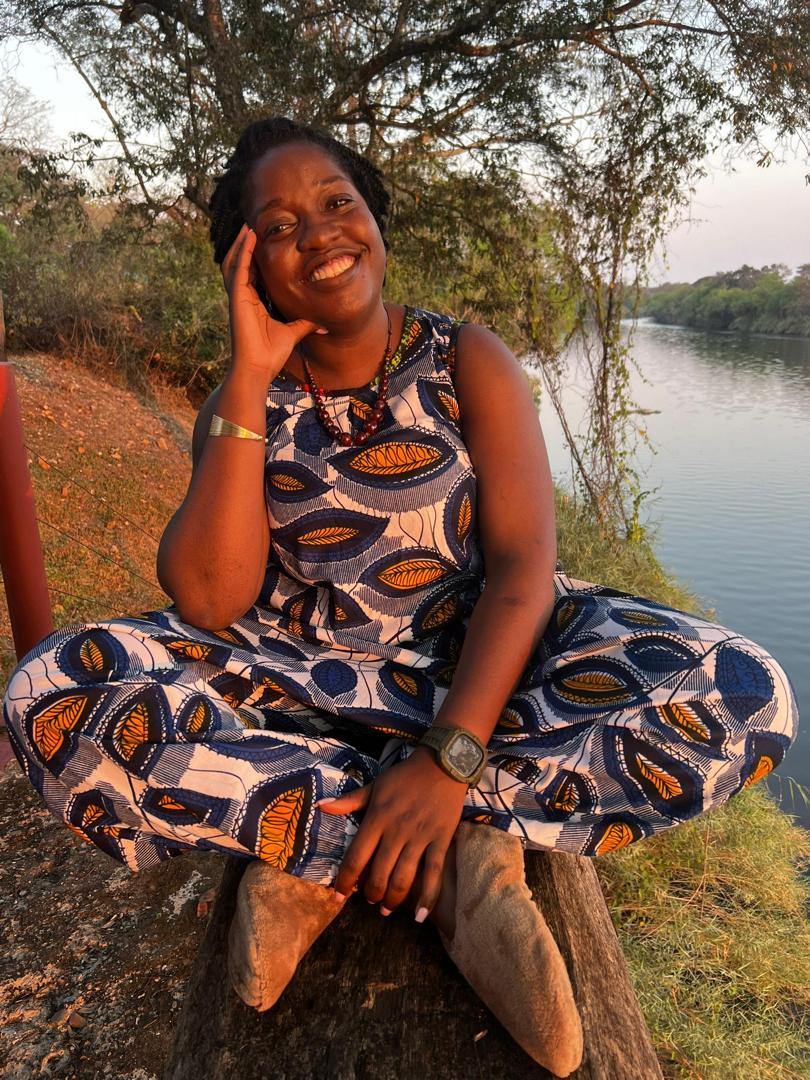Everyone who has led me well has had that clear sense of who they are and their work in the world.
While most people who get into conservation are driven by a need to focus on preserving nature, Anna is motivated by something different. People, Anna believes, are the centre of enabling healthy ecosystems.
Born in Zimbabwe and raised in Zimbabwe, Zambia and Malawi, she has, for the past three decades, been designing and facilitating processes that have enabled people and their organisations to thrive and achieve impact.
Anna has worked with several leading NGOs to support local communities, government, non-government and private sector organizations in community-based natural resource management, public health and education across southern and east Africa and currently serves as the Director of Leadership Programs at Maliasili.
The WE Africa 2022 fellow shares insights from her journey with Damaris Agweyu.

Anna, what is your superpower?
My ability to design and hold processes that enable people to do their best thinking.
I am completely conflict-averse in my personal life, but I can hold a room full of people in deep conflict and help them think through change and arrive at a consensus.
Who or what helped you nurture this superpower?
The people I grew up around were enablers. My late mother came from a long line of Scottish rural farmers and grew up with her grandparents, who lived simple but meaningful lives. I think this gave her great clarity around what she wanted from life.
She was a practising but somewhat irreverent Catholic convert who grew up in a home that held the belief that if you did something wrong, you were dammed for life. One of the reasons she left Scotland to come to Africa was to get away from her parents and what was a deeply oppressive setup.
Soon after meeting my father in Zambia, they moved to Zimbabwe, where my father worked as a tobacco buyer and then a farmer. My parents joined the Catholic church. The reason was that many Catholics in Zimbabwe at that time believed in and were working for social justice. My parents connected with a group of priests and nuns who were deep intellectual thinkers but also very spiritual people. Mum and dad found a home here and became very involved in Zimbabwe’s liberation politics. Mum believed her purpose in the world was to give people love and to heal. How she led her life influenced many of my decisions in later years.
I was also influenced by other amazing women who exposed me to fresh approaches to social transformation. Watching them made me realize that holding processes is where I can be happiest and most helpful.
Today, I am working with a team that runs leadership development programs for African NGOs with a clear mission of supporting local people.
How did you end up in this line of work?
As I was pursuing my university degree in the UK, my parents were living in Namibia. When I visited them, I was blown away by this fantastic atmosphere of reconciliation in the country. It was just after independence, a time when it was getting increasingly difficult to live in Zimbabwe. There was a lot of hostility from the government, particularly around white people trying to remigrate.
But Namibia was different.
Soon after I completed my studies, a friend told me about this new multi-racial, multi-ethnic school that was being set up. Namibia had just replaced Afrikaans with English as its official language. But many teachers could not speak the language.
I was not a qualified teacher and never intended to become one. Still, I could operate in English, and that's what they needed. I ended up working as a teacher for two and a half years. I didn't mean to stay this long. But then I met the person who is now my husband of 30 years. He was working in community-led conservation, which was a very new way of seeing conservation back then. I would spend a lot of time with him in the field in remote parts of northwest Namibia, meeting the people he was working with. It was an exciting avenue of work and made such sense to me. I started supporting him in facilitating processes and realised I enjoyed doing it. And I was good at it. I officially joined the organisation, and my role was to coordinate its training programmes. It was an unintentional plan, but I found myself in a place that responded to many things that spoke to my heart and beliefs.
I have always loved spending time in the bush. But more importantly, what inspired me was being around people who were determined to make decisions about the resources they lived with. I was more than ready to help because I believe they deserve to be at the centre of everything—not a white colonial or a modern black government.
And coming from a colonial history of a race that did terrible things, doing work that makes life better for people inspires me.
What, in your opinion, makes for a great leader?
Having a strong sense of personal purpose at your core is integral. Everyone who has led me well has had that clear sense of who they are and their work in the world. When I saw that I shared their values and way of operating, I knew I wanted to be led by them. Many have not been positional leaders but regular people whose personal power influenced my life—people like my mother.
How has the WE Africa movement influenced the way you lead today?
It's been interesting to look at my blindspots and even my relationship with myself as a privileged and relatively wealthy white woman living in Africa and working in the conservation space.
At the end of our last WE Africa retreat, two of my WE Africa sisters told me not to underestimate my power in this space. That I should use it. Their words have stuck with me.
I'm a senior leader in an organisation with many resources, and while I don't see that as having power, it actually is.
Part of getting a senior position at my organisation meant giving up doing some of the hands-on work, but it also meant I'm in a position to have even more influence on how we work. I see part of my role as being able to talk about how we weave the power of listening, empathy and social justice into how we run and lead processes as an organisation.
There is also power in the fact that, as a white woman, I have privileges that have put me where I am. For me, the idea of paying it forward translates to using that power and privilege to drive more change, even with simple things in the day-to-day in our organisation.
At what point in your life did it hit you that you were privileged?
As kids, we had been alienated at school because my parents were considered radical communists. It was socially tricky. People did nasty things to us. I left for university in the UK and returned home in the 90s. I remember coming across this illustration by the famous cartoonist, Zapiro. It was a white boy looking at a beautiful big frame, the kind you'd see in an art gallery. The canvas in the frame was white...blank, to be specific. And the caption read, "White people who never benefitted from apartheid". That hit me. I'd been thinking I'd suffered. But in the bigger scheme of things, I hadn't.
And this coincided with the realisation that when people saw me, they saw a white person and all the baggage that comes with that. When I walked into a room, the first part of my identity was my race, which attached me to many things I am not. Even though I was completely against those things. Even though my family had nothing to do with them. Even though we suffered for some of them.
Understanding, embracing and openly discussing identity, power and privilege is enormous.
It is. But talking about it is the very thing I was taught not to do.
My parents believed that even though our forefathers inflicted a lot of pain on other human beings, we were not to talk about what we were trying to do to change that. The way to address it and show our stand was through behaviour. "Just get out there and do the right thing, but don't go telling people that you are doing the right thing", was their philosophy. They themselves were liberal but never made a big fuss about it. I grew up knowing I shouldn't ever talk about being anti-racist. And so it felt like people who talked about these things were being insincere. And that is why personal visibility has never been a priority. In many ways, it's been about promoting other people, not myself.
It's taken quite a lot to get to where I feel more comfortable talking about race and, more than race, identity. And so, the most valuable thing I've gained from my WE Africa journey is being able to do that. I feel comfortable about having a place where I'm with a group of women who openly talk about these things and don't judge me based on my identity. It is a friendship, but it's also knowing others in their professional space who know you differently. There is trust there.
But it took time to get here. When we first got together at our first retreat, there was a moment of awkwardness when we were greeted by the program’s first cohort in an explosion of song and dance. It was one of the most uncomfortable moments in my life.
Why?
Questions. Doubts. Personal judgement. Again, going back to my identity as a white woman, Did I belong here? Was I taking up space for someone more deserving? It was a bit complex even for me to detangle, so I felt uncomfortable. I didn't want to seem like a sham because that's not me. I suppose it was my fear of being judged. But then something beautiful happened. One of the women, Aaniyah, came and took my hands, pulled me aside and danced with me. I don't know why the universe orchestrated that moment, but it was huge because I felt seen on many levels. It felt very generous to me.
What advice would you give your younger self?
Don't take yourself too seriously. Take the foot off the expectation pedal for yourself and everyone else. Be more generous. Judge less. Worry less. And enjoy more.
***
This interview is part of a series profiling the stories of the 2022 WE Africa leadership programme fellows, African women in the environmental conservation sector who are showing up with a strong back, soft front, and wild heart.





